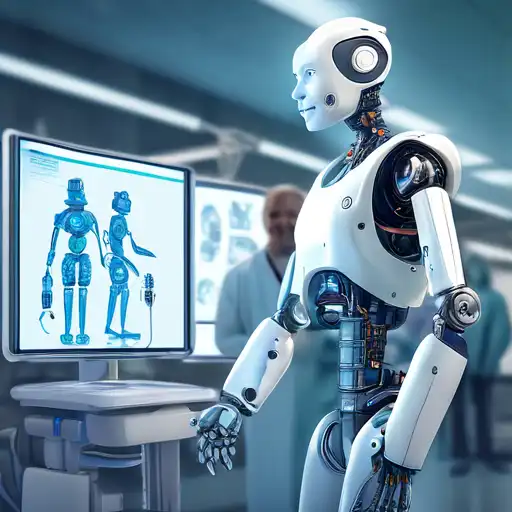The Dawn of Robotics in Healthcare
The integration of robotics into healthcare is revolutionizing the way medical services are delivered. From surgical robots to robotic prosthetics, the advancements in this field are not just enhancing the efficiency of healthcare providers but are also improving patient outcomes. This article explores the transformative role of robotics in healthcare, highlighting its benefits, challenges, and future prospects.
Benefits of Robotics in Healthcare
Robotics in healthcare offers numerous benefits, including precision in surgeries, reduced recovery times, and the ability to perform complex procedures with minimal invasiveness. For instance, robotic surgery allows surgeons to operate with enhanced precision, flexibility, and control than is possible with conventional techniques. Moreover, robots can work tirelessly, performing repetitive tasks such as dispensing medication or sterilizing rooms, which reduces the workload on human staff and minimizes the risk of human error.
Challenges and Considerations
Despite its advantages, the adoption of robotics in healthcare faces several challenges. High costs of robotic systems and the need for specialized training for healthcare professionals are significant barriers. Additionally, there are ethical considerations regarding patient privacy and the potential for reduced human interaction in patient care. Addressing these challenges is crucial for the widespread adoption and success of robotics in healthcare.
Future Prospects
The future of robotics in healthcare is incredibly promising. With ongoing advancements in artificial intelligence and machine learning, robots are expected to become more autonomous, capable of diagnosing diseases and recommending treatments. Furthermore, the development of nanorobots could revolutionize drug delivery and disease detection at the cellular level. As technology continues to evolve, the potential for robotics to further transform healthcare is limitless.
Conclusion
Robotics in healthcare is indeed a game changer, offering unprecedented opportunities to enhance medical care and improve patient outcomes. While challenges remain, the benefits far outweigh the drawbacks, making robotics an indispensable part of the future of healthcare. As we continue to explore and innovate, the integration of robotics in healthcare will undoubtedly lead to more efficient, effective, and personalized medical services.
For more insights into the latest trends in medical technology, check out our Medical Technology Trends page.
